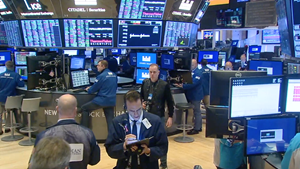Oil prices sink as rising U.S. dollar pushes investors out of commodities
(Bloomberg) --Oil slumped as a rising dollar pushed financial investors, who had piled into commodities to guard against inflation, toward the exits for other sectors.
Futures in New York fell as much as 3.3% on Thursday. Oil was under pressure as the strengthening U.S. dollar reduced the appeal of commodities priced in the currency a day after the Federal Reserve signaled its ultra-easy monetary policy will soon come to an end. Meanwhile, Iranian remarks suggesting a nuclear deal is close to being revived sparked concerns about a potential flood of crude exports from the Islamic Republic.
“Everything commodity-related is down big,” said John Kilduff, a partner at Again Capital LLC. “This is a liquidation that had been building up for weeks.”
Despite the weakness in headline crude prices, the oil market continues to display signs of strength as the pandemic ebbs. Citigroup Inc. said the international benchmark Brent could soon top $80 a barrel and pent-up leisure demand, enabled by vaccine roll-outs, will underpin global consumption. Exports of U.S. crude and fuels soared last week, the Energy Information Administration report showed Wednesday.
Still, oil as a hedge against inflation has lost its shine after the Fed announcement, prompting some investors to rotate into growth-oriented stocks.
“Dollar strength and lower-inflation expectations and a general reduction in risk appetite has for now reduced investment appetite in crude oil,” said Ole Hansen, head of commodities strategy at Saxo Bank. “The oil market is not only driven by fundamentals which are currently supportive, but also financial investors buying oil for other reasons, such as momentum, inflation hedge and dollar plays.”
Iranian Deputy Foreign Minister Abbas Araghchi said fundamental issues still remain to be negotiated and negotiators will continue talks regardless of the country’s June 18 election.
The prospect of more Iranian crude in the oil market will weigh on investors in the short term along with the rising dollar, according to Ed Moya, senior market analyst at Oanda Corp. “You have two big events that are likely big headwinds on oil.”
Related coverage:
- Tehran probably won’t be able to bolster production or release stored supplies until 4Q as the nuclear accord proves elusive, consultant Energy Aspects said in a report.
- Iran said it may renew a key monitoring agreement, potentially buying more time to revive a 2015 atomic deal.
- OPEC+ could easily agree to boost output, according to Mele Kyari, head of Nigeria’s state-run oil company.



